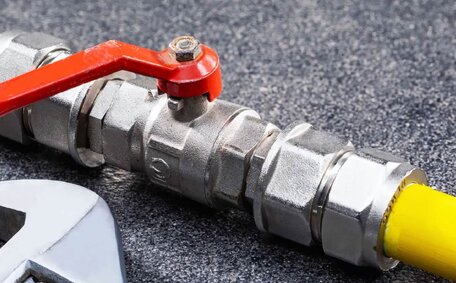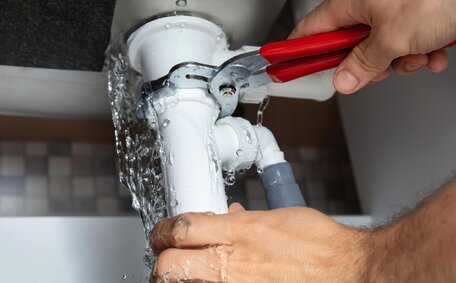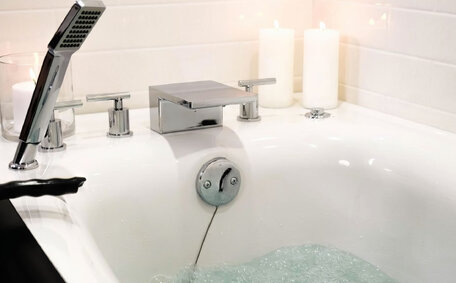Introduction to Hot Water System Efficiency
Achieving energy efficiency in hot water heating, particularly with heat pump solar systems, is vital since it significantly influences home energy consumption. The efficiency of your pump water heater system has a major impact on your energy bills, making it a significant factor in your household expenses. Climate, temperature, and usage patterns significantly influence hot water system performance.
Heat pump hot water and solar systems are more energy efficient and perform well in warm environments, in contrast to electric resistive units. Yet, these systems may perform less effectively in cold climates. Local weather conditions are a critical factor in choosing the most efficient hot water system for your home.
Upgrading to an energy-efficient storage water system allows you to save substantially on running costs over time. This article examines the advantages and drawbacks of various hot water systems, assisting you in selecting one that’s ideal for your environment.
Comparing Electric, Gas, Heat Pump and Solar Hot Water Systems
When deciding on a hot water system for your home, it’s important to balance the efficiency and costs of varying technologies:
- Electric Storage: Uses electric heating elements to warm water stored in an insulated tank. These units have a low initial cost, though they’re less efficient, functioning at approximately 88% efficiency.
- Gas Storage: Gas storage systems with natural gas burners operate at about 75% efficiency and are more efficient than electric but emit more greenhouse gases.
- Heat Pump: Extracts heat from ambient air to heat water as needed. Extremely efficient at 300-500% but has a higher upfront cost.
- Solar Hot Water: Leverages free solar energy to preheat water, optimal in sunny regions, but requires substantial roof space for solar panels.
Properly installed heat pump water heaters are 60-75% more energy-efficient than conventional electric storage heaters, resulting in notable savings on energy bills. However, pump hot water systems are often more expensive upfront. Solar water heating systems effectively utilise free renewable energy but their efficiency relies on receiving ample sunlight.
Carefully consider both initial costs and long-term savings when selecting hot water systems to ensure cost-effective selections for your home. An eco-friendly heat pump or solar hot water system can save money over time despite higher initial purchase and install costs.
How Climate and Environment Affect Efficiency
The performance of hot water systems is greatly influenced by the moderate coastal climates found in Mosman and many parts of New Zealand. Factors like ambient air temperature, sunlight hours, humidity levels, and average energy demand affect system efficiency.
Heat pumps, which efficiently process air heat and water, thrive in warm, temperate climates like Sydney. However, their efficiency significantly diminishes in colder climates.
They employ heat exchange technology, pulling warmth from outdoor air to heat water. This enables them to operate at 300-500% efficiency - generating far more energy than they consume.
Solar hot water also harnesses free renewable energy via roof-mounted panels. But sufficient direct sunlight exposure is critical for good performance. Mosman averages around 7 hours of sun per day. South-facing panels, free of shade, are ideal.
Conventional electric hot water units aren’t influenced as heavily by climate conditions, unlike gas water heating systems which may have varying efficiencies. However, they often waste energy by continuously reheating water in a storage tank. Smart, continuous flow systems avoid this issue by heating water only when necessary.
Before installation, evaluate your location, weather, sunlight availability, utility costs, water demand, and greenhouse emissions. An energy-efficient heat pump or solar system with lower energy costs can also suit different environments long-term but might not suit all.
Best Practices for Maintenance
Regular maintenance is crucial to maximize operational efficiency and minimize energy use over the life of your hot water system. Here are some best practices for saving energy:
- Flush the hot water heater annually by draining water from the tank to remove sediment that can hinder heat transfer and lead to corrosion.
- Inspect anodes regularly as they protect the inside of the tank from rust – replace them before they’re 80% worn.
- Ensure pipe insulation is intact to prevent heat loss in water delivery to fixtures.
- For solar systems, keep collectors free of shade, clean, and correctly angled to maximise solar gain.
- For heat pump water heaters, maintain clean air filters and guarantee adequate airflow around the unit.
- Consider installing a timer to match water heating with usage times, avoiding constantly reheating a tank.
- Check pressure/temperature relief valves to ensure corrosion isn’t blocking the release.
- Replace leaking taps which waste your water and energy.
- Monitoring your energy bill is crucial to assess actual system efficiency and detect early issues.
You can maintain optimum system efficiency yourself via routine maintenance. For comprehensive service or repairs, contact Mosman Plumbing, your local specialists in hot water solutions.
When to Service or Replace Your Hot Water System
There are a few key signs indicating your hot water system needs servicing or replacement:
- Systems typically operate for 10-15 years, but efficiency might decline by 5-10% yearly due to increasing sediment and component wear.
- Frequent breakdowns and repairs - If your older unit is requiring repeated repairs, replacing it may save money in the long-term for your energy budget.
- Rusty or leaking tanks - Corroded tanks risk failure and water damage. Check your anode rod condition.
- If you notice climbing energy bills, it may point to diminished system efficiency that needs investigation.
- Long heat-up times, limited hot water - Insufficient hot water supply signals undersizing, wear or sediment buildup.
- Strange noises, dripping taps - Knocking or bubbling from the tank indicates efficiency loss.
- Water quality problems - Bad taste, odour or discolouration requires system flushing.
Service your hot water systems every 1-3 years for optimal performance. Address minor issues with repairs or replace systems that are deteriorating and inefficient. Consult with Mosman Plumbing Pty Ltd for tailored options for your specific hot water system.
Incentives for Energy-Efficient Upgrades
Transitioning to an energy-efficient system such as a heat pump or solar hot water can result in significant long-term energy bill savings, even with higher upfront expenses. Luckily, helpful incentive schemes are available.
Eligible installations of solar hot water or heat pump systems may receive Australian Government rebates of up to $1000. Visit the Clean Energy Regulator to check eligibility.
The NSW Government runs the Empowering Homes programme which can offer discounts on solar panels and batteries. This can indirectly help slash water heating costs too when paired with a heat pump system and pv system.
Contact Mosman Plumbing to discover current incentives you may qualify for when upgrading hot water systems. Our team stays up-to-date on the latest schemes to help locals slash water heating bills through eco-friendly heat pump or solar systems.
Take advantage of incentives and achieve long-term savings on energy bills!
Sizing Your Hot Water System Properly
Choosing an appropriately sized hot water system is essential to maximize energy efficiency at home. An oversized electric heat pump with excess capacity results in energy waste and higher bills. But an undersized system leaves you without enough hot water.
Consider your household’s typical daily hot water usage based on:
- Number of occupants
- Bathing and showering habits
- Peak usage times
- Clothes washing machine demand
This helps determine the appropriate storage capacity and heating rate your system realistically requires. Allocating 50-80 litres of storage per person, factoring in shower flow rates of 9-12 litres per minute, is a useful guideline.
Fitting several small on-demand units at points of high usage may be more efficient than a single centralised system with extended piping. Locate units close to bathrooms and kitchen.
Discuss water heating sizing specifics suited to your home with Mosman Plumbing’s experts. Rightsizing your system prevents excessive energy waste while supplying adequate hot water for daily needs.
Lowering the Environmental Impact
Transitioning to energy-efficient hot water systems is one of the most effective ways households can reduce its environmental carbon footprint. By using less energy to heat water, eco-friendly setups like heat pumps and solar hot water can reduce your greenhouse gas emissions from power generation.
Heat pumps, sourcing energy from the air and using less electricity due to their renewable thermal properties, can reach efficiencies of 300-500%, compared to 88% for traditional electric units. This equates to major emissions savings over time.
Further ways to boost efficiency and minimise environmental impact include:
- Installing efficient hot water heat recovery devices to extract waste heat from household drainage water to pre-heat the cold water supply.
- Using pipe insulation to prevent heat loss during distribution.
- Upgrading to instantaneous systems which heat water on demand rather than constantly heating entire tanks.
- Monitoring usage to tweak your heating schedule via smart technology like timers and thermostats.
- Choosing the correctly sized system to prevent overheating large tanks of unused water.
By upgrading outdated, inefficient hot water systems and incorporating clever efficiency add-ons, Mosman households can benefit from long term cost savings while doing their bit for the environment.
Lower your energy use and carbon footprint with heat pumps or solar today!






